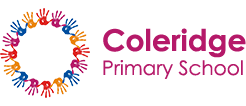Science
Science
The Coleridge Science Curriculum starts in the Early Years Foundation Stage where, through carefully planned play-based learning activities, games, songs and texts, children are introduced to the foundational knowledge and language of science. Water trays, for example, allow children to explore objects that float and…
The Coleridge Science Curriculum starts in the Early Years Foundation Stage where, through carefully planned play-based learning activities, games, songs and texts, children are introduced to the foundational knowledge and language of science. Water trays, for example, allow children to explore objects that float and sink, whilst junk modelling and construction toys help children to understand that cardboard, paper, wood and plastic behave in different ways. This knowledge and language is essential as children move into Year 1 where they will learn to group materials based on their properties.
At the start of Year 1, children begin to follow the National Curriculum which sets out objectives for science under two broad headings. These are:
- Scientific Knowledge and Conceptual Understanding
- The Nature, Process and Methods of Science (working scientifically)
Scientific Knowledge and Conceptual Understanding aims to develop in children, a body of knowledge about the established theories and principals of science: that light travels in straight lines for example; that sounds are caused by vibrations; and that objects on earth fall downwards because of the force of gravity.
The Nature, Process and Methods of Science (working scientifically), focuses on the skills of scientific enquiry, making clear to children how careful testing, observation, recording and analysis, can produce reliable evidence upon which scientific theories and principals can be formed.
At Coleridge, we recognise that these two areas are fundamentally linked, and so aim to deliver them in conjunction with one another. For example, children at Coleridge are sometimes asked to use the tools of scientific enquiry to discover facts and concepts for themselves, or on other occasions, may be presented with the concept, and then asked to interrogate the research practices on which it has been based. By teaching science in this way, children come to understand how theories and principles have been established over time, and to appreciate that science is a continuously evolving discipline, rather than a static corpus of information that exists within the pages of dusty text books.
The Coleridge Science Curriculum is carefully sequenced so that learning is consolidated and developed year on year. Over time, children at Coleridge develop a ‘web of understanding’ that is highly connected, allowing them to make links between different areas of the science curriculum, and between learning in other subjects too.
Our curriculum is also a highly practical one with engaging experiments and activities. This ‘hands on’ approach not only allows children of all literary abilities to access the curriculum, but it lets them experience some of the whizzes, pops and bangs that make science an innately exciting subject for young children to learn.
To view our school curriculum map, please click here.
To view our Knowledge and Conceptual Understanding progression map, please click here
To view our Working Scientifically progression map, please click here

